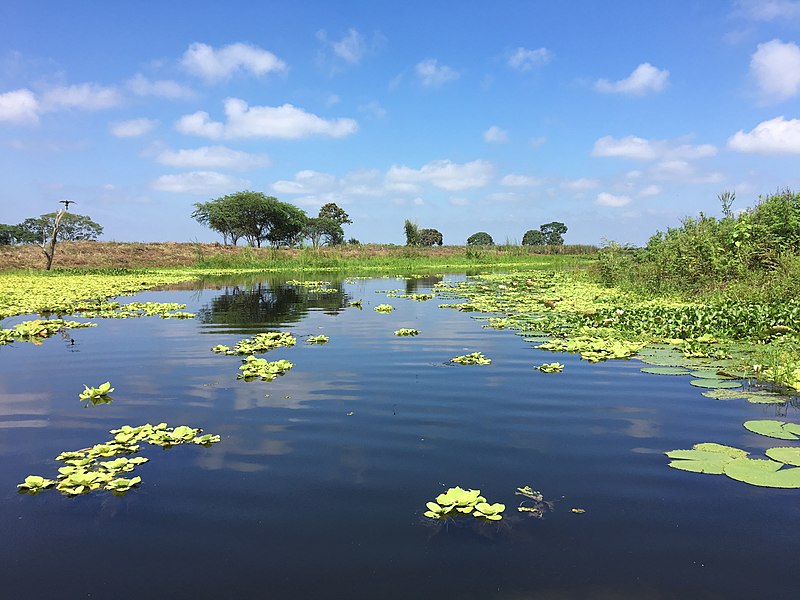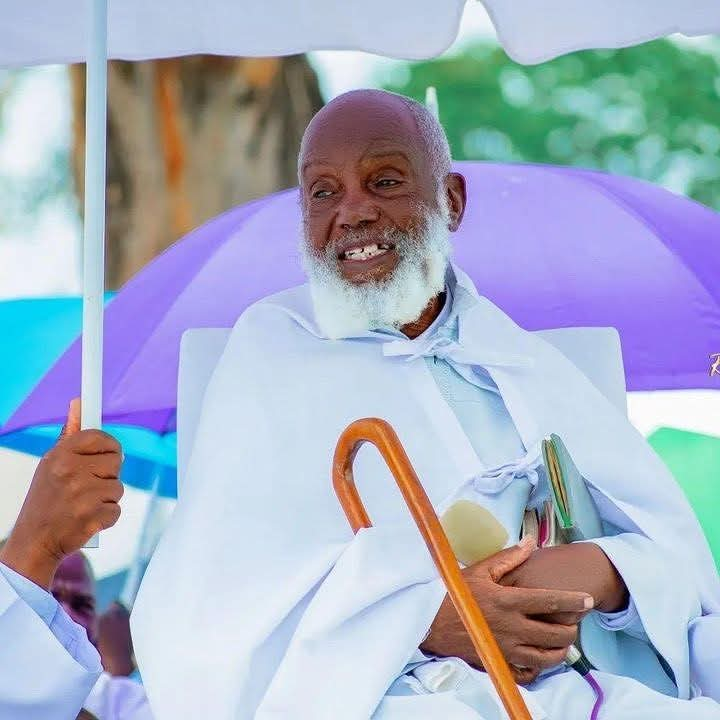Current Affairs
Hosting Ramsar COP15 is a landmark in wetland conservation leadership

By Innocent Mujeri and Nathan Muchemwa in Victoria Falls
In a world increasingly defined by environmental challenges, Zimbabwe has taken a significant step forward in cementing its role as a responsible and visionary steward of natural resources.
From 23 to 31 July 2025, the country proudly hosts the Fifteenth Meeting of the Conference of the Contracting Parties (COP15) to the Ramsar Convention on Wetlands at the majestic Victoria Falls, a UNESCO World Heritage Site.
This is not only a historic first for Zimbabwe, but a powerful symbol of the nation’s growing leadership in global environmental governance.
The Ramsar Convention on Wetlands, established in 1971 in Iran, is the only international treaty focused specifically on the conservation and wise use of wetlands.
COP15, bringing together delegates from over 170 contracting parties, scientists, policymakers, NGOs, and development partners, is a platform for nations to deliberate on best practices, exchange ideas, and adopt frameworks for wetland preservation.
The selection of Victoria Falls as the host site could not be more appropriate.
Known locally as “Mosi-oa-Tunya” (The Smoke That Thunders), Victoria Falls embodies the very essence of wetlands: biodiversity, natural beauty, tourism potential, and ecosystem services that sustain both people and wildlife.
The surrounding Zambezi River floodplains and wetlands support one of Africa’s richest biodiversity corridors, offering an ideal backdrop for discussions on protecting such ecosystems worldwide.
Hosting COP15 here allows Zimbabwe to highlight its natural endowments, not merely as touristic spectacles, but as vital ecosystems deserving of deliberate conservation efforts.
Zimbabwe’s hosting of COP15 is a bold testament to the country’s renewed commitment to sustainable environmental management.
In recent years, the Government of Zimbabwe, through the Ministry of Environment, Climate and Wildlife, has made tangible strides in protecting wetlands that had long been degraded by urban expansion, agriculture, and climate change.
Initiatives such as the Wetlands Management Policy, the establishment of the Environmental Management Agency (EMA), and the designation of Ramsar sites such as Driefontein Grasslands and Lake Chivero demonstrate Zimbabwe’s seriousness in implementing the Ramsar Convention at the national level.
By bringing COP15 to Victoria Falls, Zimbabwe sends a message to the world: we are not only participants in global environmental agreements, we are leaders.
The last Ramsar COP (COP14) was held in November 2022 in a hybrid format, with sessions in Wuhan, China, and Geneva, Switzerland.
That meeting produced the Wuhan Declaration, reaffirming the urgent need to protect wetlands amidst global biodiversity loss, climate change, and pollution.
It also adopted the Global Strategic Framework for Wetland Conservation 2025–2030, which now provides the guiding principles for COP15 deliberations.
Zimbabwe has taken this momentum seriously. In her official statement during the opening ceremony, Hon. Dr. Evelyn Ndlovu, Minister of Environment, Climate and Wildlife, underscored the theme: “Protecting Wetlands for Our Common Future.”
She called for unity, investment, and political will in addressing wetland loss globally — with Africa, and Zimbabwe in particular, poised to offer solutions rooted in indigenous knowledge and innovation.
Beyond the conference rooms and plenary sessions, the hosting of COP15 brings significant socio-economic benefits.
The influx of international delegates has already stimulated the hospitality industry, with hotels in Victoria Falls operating at near full capacity.
Tour operators, small businesses, and community projects around the area are enjoying a rare boost in visibility and income.
This aligns with Zimbabwe’s long-term strategy to leverage its environmental assets for economic development.
Wetlands are not just about frogs and birds — they are essential to food security, water purification, climate regulation, and ecotourism. Protecting them is not only a conservation imperative, but a developmental one.
One of the lesser-celebrated but most impactful aspects of COP15 has been the inclusion of youth voices and local innovators.
Young Zimbabwean environmentalists and university students have participated in side events and exhibitions, showcasing mobile apps for wetland monitoring, community-based mapping tools, and traditional practices for sustainable wetland use.
By nurturing this new generation of environmental stewards, Zimbabwe is investing not only in the future of its wetlands but in the long-term sustainability of its development model.
This is a departure from decades where environmental matters were relegated to the periphery of national discourse.
Zimbabwe’s moment as COP15 host is also a defining one for Africa. While wetlands cover roughly 10% of the continent, their degradation has accelerated due to population pressures, weak policy enforcement, and the effects of climate change.
Zimbabwe’s proactive hosting role sets a standard for other African nations to follow.
Indeed, the collaborative spirit exhibited at COP15 — from joint statements with SADC counterparts to technical working groups on transboundary wetlands — reflects an emerging consensus that African solutions must be part of the global wetland conservation narrative.
Hosting COP15 is not the end — it is a powerful beginning. Zimbabwe has gained global attention and acclaim, but this must now translate into real change on the ground.
Wetlands in Harare, Bulawayo, Masvingo and other urban centres must be restored and protected from illegal settlements and pollution.
Communities must be empowered through education, incentives, and infrastructure to play a role in wetland management. And most importantly, political leaders must remain accountable to the commitments made on this global stage.
Zimbabwe has proven that it can lead, inspire, and shape a positive environmental future — not just for itself, but for the world. The ripple effects of COP15 will be felt for years to come. And for a country that has faced its share of challenges, this is a victory worth celebrating.
Current Affairs
Minister Rwodzi Charts Path as Sector Takes Lead in GDP Growth

Itai Mazire
Tourism and Hospitality Industry Minister Barbara Rwodzi has implored players in the sector to embrace innovation, sustainability, and stronger partnerships to safeguard Zimbabwe’s tourism gains, as the industry now leads national GDP growth ahead of mining and agriculture.
In a speech delivered on her behalf by Tourism Permanent Secretary Dr. Takaruza Munyanyiwa at the Hospitality Association of Zimbabwe (HAZ) Summit and Annual General Meeting in Harare today, Minister Rwodzi said the country stood at a “historic crossroads” following its recent listing by Forbes as the best destination to visit in 2025.
“This is a well-deserved accolade which we should celebrate and sustain going forward. Congratulations, makorokoto, amhlope to the service providers of the tourism and hospitality industry of Zimbabwe.”
The Minister applauded the sector’s resilience in the face of pandemics, economic headwinds, and climate-related shocks, noting that the spirit of Zimbabwean hospitality remains unbroken.
“We have continued to smile, to serve, and to tell our authentic story, hence reaping the rewards now,” she said.
Giving an update on performance, Minister Rwodzi reported that international tourist arrivals grew by 9 percent between January and September 2025 compared to the same period last year, with strong traffic from the Americas, Africa, and Asia.
Domestic travel also surged by 20.9 percent over the same period, while the sector generated approximately USD 922 million in 2025 a 10 percent rise from the USD 839 million recorded last year.
“These are encouraging signs that our recovery is gaining positive traction. But future-proofing requires more than recovery it demands transformation,” she said.
Minister Rwodzi outlined five pillars she said would anchor the transformation of the sector: digitalisation; sustainable and climate-resilient tourism; human capital development; infrastructure and connectivity; and stronger branding and market diversification.
“The future of hospitality is digital,” she said. “We must move from brochures to big data, from paper-based booking to smart platforms.”
She urged operators to embrace online booking systems, virtual reality tourism aids, and other digital tools that enhance visitor experiences.
On sustainability, Minister Rwodzi said protecting Zimbabwe’s natural and cultural heritage was “not an expense it is an investment in the longevity of our industry.”
The Minister stressed the need to invest in human capital, calling on operators to work closely with academia to bridge skills gaps and develop tomorrow’s hospitality innovators. She highlighted the First Lady, Dr. Auxillia Mnangagwa’s gastronomy vision as a key avenue for elevating Zimbabwe’s culinary offerings.
On infrastructural development across the country, she said it remained central to competitiveness: “A tourist’s journey begins long before they reach our front desk — it begins on a road, a runway, or a mobile network.”
Minister Rwodzi reiterated that Government is committed to creating an enabling environment, pointing to the recent reduction of tourism fees by up to 50 percent to lower operating costs.
“Future-proofing cannot be achieved by Government alone,” she said. “The private sector is the engine of creativity, investment, and service excellence.”
Her call for collaboration was anchored on an African proverb which states that, “Tomorrow belongs to the people who prepare for it today.”
The Minister said the role of HAZ remained critical as Zimbabwe eyes increased international tourist inflows.
“The world’s eyes are turning towards Zimbabwe. We have the assets, we have the people, we have the passion so why not?” she said.
“To HAZ, your role has never been more critical. You are the unified voice of the hospitality industry. Your strength lies in your collective action.”
She said the ongoing summit provided a platform to “strategise, innovate, and build consensus” as the sector pushes towards Vision 2030.
“The potential is vast. The time is now. Let us build not just an industry, but a legacy,” said Minister Rwodzi.
Current Affairs
Apostolic Church Founder Paul Mwazha Dies at 107

Zimbabwe and the wider African Christian community are mourning the loss of Bishop Paul Mwazha, the revered founder of the Apostolic Church in Africa, who passed away today at the remarkable age of 107.
Bishop Mwazha, widely regarded as one of the continent’s most influential religious leaders, dedicated his life to the growth and spiritual guidance of his church, which boasts millions of followers across Zimbabwe and beyond. His teachings, rooted in faith, discipline, and community service, have left an enduring legacy that continues to shape generations.
The Apostolic Church in Africa under his leadership became a cornerstone of spiritual life in many communities, providing not only religious guidance but also social support and education initiatives. Church leaders have called for prayers as they prepare for national and regional mourning rituals.
Further details on funeral arrangements and memorial services are expected to be released in the coming days.
Business
Zimbabwe Bets Big on Biotech to Fuel Industrial Revolution


Dr. Eng. Willie Ganda
By Enia Dube
The Minister of Higher and Tertiary Education, Innovation, Science and Technology Development, Hon. Dr Fredrick Shava, has thrown his weight behind biotechnology as a key driver of the country’s industrialisation and modernisation agenda.
Speaking at the National Biotechnology Authority (NBA) Strategic Planning Workshop in Kadoma, Dr Shava urged the Authority to identify biotechnology-led opportunities that can boost national production and accelerate economic growth.
“Biotechnology serves as a key catalyst for NDS2 implementation, advancing inclusive economic growth, job creation, and sustainable industrial development,” Dr Shava said, emphasising the need to integrate biotechnology into national value chains to unlock a biotechnology-driven economy. He added that this would turn innovation into industry, knowledge into enterprise, and science into jobs.
The NBA has made notable progress in establishing a strong regulatory framework, promoting biotechnology research and commercialisation, and raising public awareness about the sector’s potential. The Authority has successfully commercialised products such as Mapfura wine and Cofsol cough syrup, and has several other biotechnology products in the pipeline.
Incoming NBA Board Chairperson, Professor Idah Sithole-Niang, echoed Dr Shava’s sentiments, emphasising that the Authority’s five-year strategic plan must meaningfully contribute to the attainment of Vision 2030. “This event marks a significant milestone in the Authority’s ongoing efforts to enhance the role of biotechnology in Zimbabwe’s socio-economic development,” she said.
The workshop aimed to realign priorities and resources in response to emerging technologies and global biotechnology trends, and develop a strategic roadmap to strengthen biotechnology as a key driver of Zimbabwe’s socio-economic transformation. The rapidly evolving global biotechnology landscape, including advancements in gene editing, bio-manufacturing, and climate-smart innovations, presents both new opportunities and challenges for Zimbabwe.
“We recognise the pressing need for an inclusive and forward-looking strategic plan that can navigate the complexities of the biotechnology landscape,” Professor Sithole-Niang noted. The workshop was attended by researchers, government officials, and NBA staff, who are optimistic about the potential of biotechnology to drive Zimbabwe’s economic transformation and achieve Vision 2030.
-

 Current Affairs1 week ago
Current Affairs1 week agoOperation restore order
-

 Crime and Courts2 months ago
Crime and Courts2 months agoMasasi High School Abuse Scandal Sparks Public Outcry
-

 Crime and Courts2 months ago
Crime and Courts2 months agoKuwadzana Man Jailed for Reckless Driving and Driving Without a Licence
-

 Current Affairs3 months ago
Current Affairs3 months agoMunhumutapa Day: Zimbabwe’s Newest Public Holiday Set for Annual Observance
-

 Current Affairs4 months ago
Current Affairs4 months agoBreaking: ZIMSEC June 2025 Exam Results Now Available Online
-

 Current Affairs1 month ago
Current Affairs1 month agoBREAKING NEWS: ZANU PF Director General Ezekiel Zabanyana Fired
-

 Current Affairs3 months ago
Current Affairs3 months agoGovernment Bans Tinted Car Windows in Nationwide Crime Crackdown
-

 Current Affairs2 months ago
Current Affairs2 months agoExposed: Harare GynecologistChirume Accused of Negligence, Extortion, and Abuse







